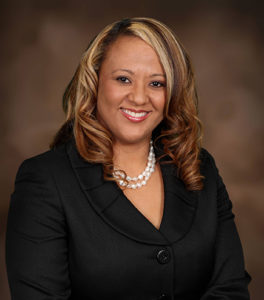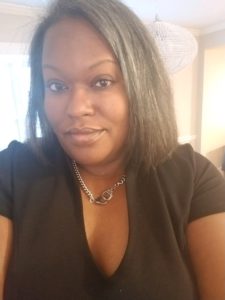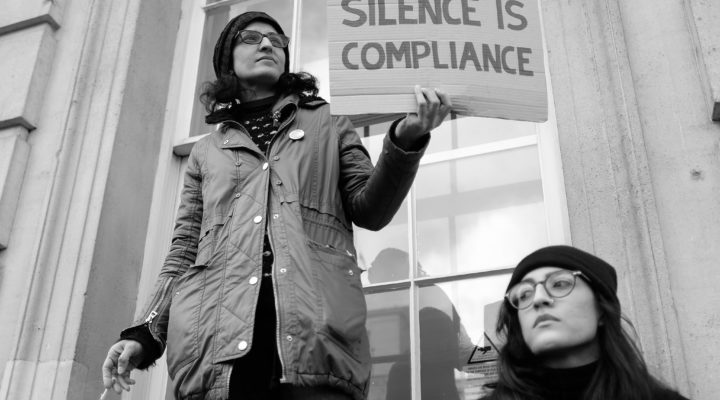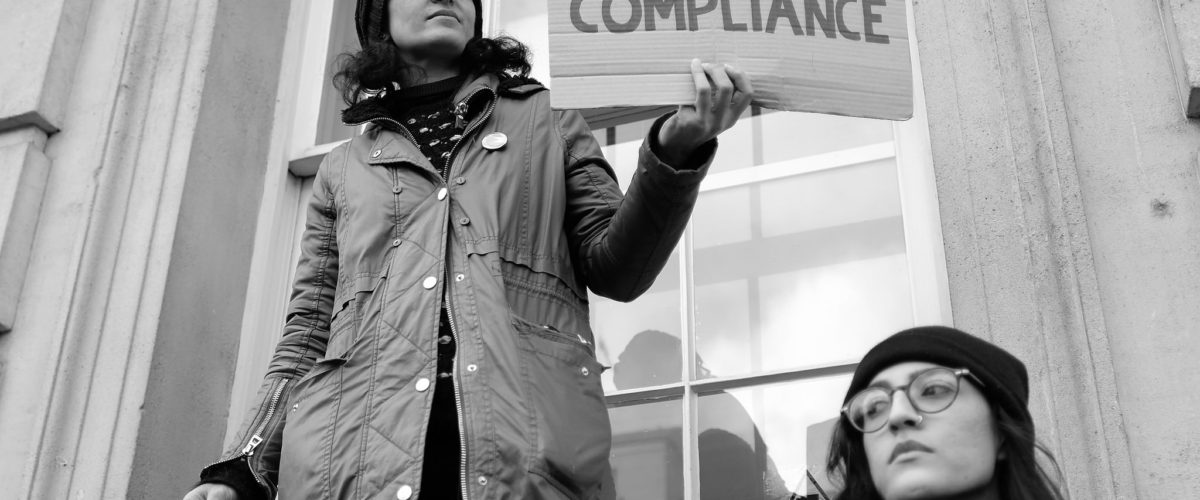LaTonya McIver Penny wasn’t satisfied with surrendering chocolate or coffee or Facebook for Lent.
Instead, the African-American pastor of a Baptist church in North Carolina decided to give up white supremacy this year.
No, Penny isn’t a white supremacist. But she wants to be more vigilant about the subtle and numerous ways racism permeates the culture and even her own life — and then work to uproot them moving forward.
Inspiring and guiding Penny’s effort is Resipiscence: A Lenten Devotional for Dismantling White Supremacy.
The project consists of a spiral-bound book, also available digitally, that serves as a daily reader and as the framework for worship during the Sundays of Lent. It includes a podcast series featuring conversations with the nearly 50 contributing devotional writers.

LaTonya McIver Penny (Photo/Courtesy of LaTonya Penny)
Penny said her church is incorporating the Lectionary based devotions into its Wednesday night services.
The daily readings focus on the values and myths of racism and its seductive influence over perpetrators and victims alike.
The text is “asking us to give up white supremacy for Lent, in the words of the authors,” Penny said. “It’s trying to get people to focus on the inherent right to equality.”
The project seeks to break the immense challenge of racism into daily reflections and practical tasks aimed at dismantling racism, Penny said.
“If we are going to make a change, it’s not a one-time thing that we do, but a daily walk and how we view life,” she said.
‘Whiteness is the default’
Change is what the series of devotions is all about, said co-editor Vahisha Hasan, executive director of Movement in Faith, a ministry that helps faith communities identify and develop callings to social justice and mental health advocacy.
“Resipiscence” refers to a change of heart and a call to return to sound perspective, said Hasan, a Charlotte, N.C., native currently living in Memphis, Tenn., who said she leans “more Baptist” in her Christian identity.
The idea she and co-editor Nichola Torbett brainstormed was to build lessons on eradicating racism on the familiar Lenten themes of self-sacrifice and growing closer to God.
“We are saying do those things but with the lens of how white supremacy shows up … in our hearts and minds,” Hasan said.
For Hasan, Torbett and their contributing writers, “white supremacy” refers to the pervasive way that whiteness dominates culture, however subtly.
The image of a white Jesus is a good demonstration of that principle, Hasan said.
Christ is depicted as white — even extremely so with blond hair and blue eyes — in white Christian traditions despite having lived in a place where such ethnicity would have been unlikely.

Vahisha Hasan
“I don’t need Jesus to be anything but himself,” Hasan said. “But it’s interesting to me how white folks need him to be white — pure white — in order to follow him and receive him.”
Whiteness also pervades hiring policies and the stereotyping of poor people and those on government assistance as black.
In academia and faith, white theology is simply called “theology,” while other viewpoints get labeled “black theology” or “feminist theology,” she noted.
“It’s the idea that whiteness is supreme and should be the default of everything,” Hasan said.
Authors of the reflections represent a wide range of ethnic, gender and religious perspectives, Hasan said, in order to provide readers and listeners with divergent viewpoints.
“Me, as a heterosexual black female will see an issue differently from my queer sister in a different part of the country,” she said. “The constant is how does white supremacy show up in our different contexts.”
Another constant is the need to use knowledge and insights gained from the reflections as motivations for action, Hasan added.
The contributing authors also help with that.
“These are not people who are sitting around musing on these things,” she said. “They are doing some type of social action in their local areas.”
‘Something has to die’
The reflections have been eye-opening for Durham resident YaKisha Cole.
Cole described herself as still very much in the learning phases of her Christian faith. All she knew about Lent was the idea of giving up luxuries like soda or chocolate.
But that has changed since attending the Recipience sessions at Penny’s New Mount Zion Missionary Baptist Church in Roxboro, N.C.
“It breaks down what it means to do Lent, that it’s about examining yourself and learning more about God and denying yourself,” Cole said.

YaKisha Cole
The reflections helped her realize how pervasive white supremacy is and that she can even be complicit in it as an African-American woman.
“Instead of being confrontational about it, you can have a positive conversation about it,” she said of encounters with racist attitudes. “Most of the time I would go ‘oh, that’s just how it is,’ and let it go.”
Penny said the racism-focused Lenten devotional has proven to be a good way to present these issues in daily doses.
“The Lenten season is about making our way to Calvary,” Penny said. “But before that can take place, something has to die.”


